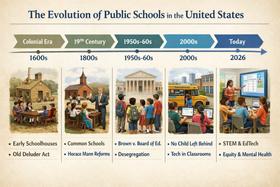With the push by the current administration to graduate more students from community college over the next decade, institutions of higher education are focusing on ways to ensure students who enroll in college actually end up with a degree or professional certificate on the other side. As schools are examining this factor in greater detail, information is emerging that makes many college educators wonder why students who may perform well in high school flounder academically when they enter the ivied halls of higher education. A number of recent studies suggest that many high school students are ill-prepared for the academic rigors of higher education, even if their performance in high school was above average. This knowledge is leading some schools to revamp freshman programs to ensure more students stick with their academic efforts until they find success and a degree.
This video reports on how 60% of students are not ready for college-level work.
“One Year Out” Explores College Readiness
A recent study conducted by the College Board, titled, “One Year Out,” looked at college readiness, as well as a number of other factors that determine whether those that enter a community college or a university as a freshman will actually stick with their studies until graduation. According to the College Board website, the study found that many students entering college for the first time were not prepared for college-level courses, no matter how well they did in high school. More than half of the students polled said that college courses were more difficult than they expected, and nearly one-quarter stated that they were required by their colleges to take non-credit remedial courses at the beginning of their college experience.
In addition, the study found that 44 percent of the students polled wished they had taken different classes while in high school, particularly in the areas of math, science, and writing classes. Almost half of the students admitted they should have worked harder in high school to be adequately prepared for higher education. More than one-third thought high school courses should have been more challenging to help prepare them for the rigors of college coursework.
Chicago Tribune Analyzes Public High School Preparation
The Chicago Tribune recently collected and analyzed data of their own to determine how well public schools in the state are preparing students for higher education. The publication found that the majority of Illinois students are struggling to maintain a “B” average during their freshman year of college, even if they performed well in the top high schools in the state. The Tribune discovered that 10 of the 11 four-year universities in Illinois had freshmen earning less than a 3.0 during their first year on campus. Unfortunately, community college freshmen seemed to face similar struggles as well, with the average freshman GPA running at 2.52 across all state universities and community colleges. These numbers were taken from state data that tracked more than 90,000 public high school students who graduated between 2006 and 2008.
“More and more students seem to be less prepared for college; particularly math and English skills are not what we would like them to be when they come to college,” Rita Cheng, chancellor at Southern Illinois University at Carbondale, told the Tribune. School officials at both the K-12 and college-level blamed the statistics on a variety of factors, including inadequate high school preparation, inflated high school grading systems, and too much independence the first year away from home in college. Many students do seem to boost their GPAs back up to a respectable level after their freshman year is completed.
Chicago Students Perform Poorly on ACT
Another Chicago study seems to point at ACT scores as an indicator that high school students may not be as well prepared for college as they should be. According to a report in the Beacon-News, preliminary ACT scores for students in Fox Valley showed that less than one-quarter of students met college-readiness standards in all four ACT subjects, which include math, reading, English, and scientific reasoning. Statewide, ACT scores in Illinois were also below the national average, with a composite score of 20.9 for the state, versus a national average of 21.1. However, educators in the state assert that the standardized test's score is just one benchmark of college readiness, and many other factors go into determining whether a student will be successful in college.
“Clearly we want more students over the benchmark, but when we look at the ranges, we have a lot of students in the range, so we have a lot of evidence we are moving in the right direction,” Erika Schlichter, director of educational services at Kaneland, told the Beacon-News.
This video from Newsy makes the claim that most high school seniors are not ready for college-level academic work.
West Virginia Students Facing Dropout Problem
In West Virginia, around 20 percent of all the freshmen entering college will drop out before the first year is over, according to a report at the Wheeling News-Register. The reason given by school officials at West Virginia University is that these students simply aren’t ready for college. In response to the problem, this university is offering more programs to incoming freshmen to make the transition into higher education easier for incoming freshmen. However, the article also states that this approach won’t change the fact that high schools may not be adequately preparing students for the rigors of postsecondary education. While students heading to WVU may get much-needed assistance, it won’t be much help to students attending other universities and community colleges around the state.
College is a rigorous academic process, and proper preparation makes all the difference between success and an uncompleted degree. The problem is being addressed at the college level, but it also appears that dealing with the issue at the high school level is essential to the success of students across the country.
Questions? Contact us on Facebook @publicschoolreview.












